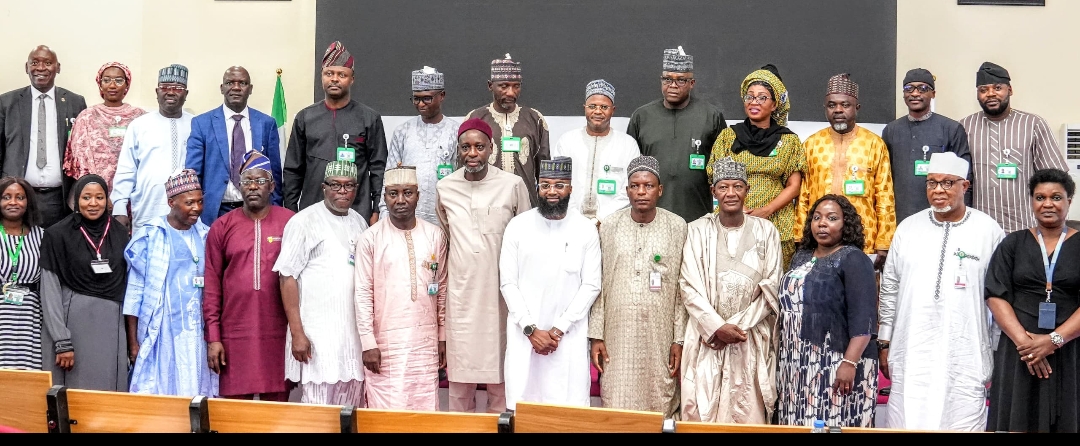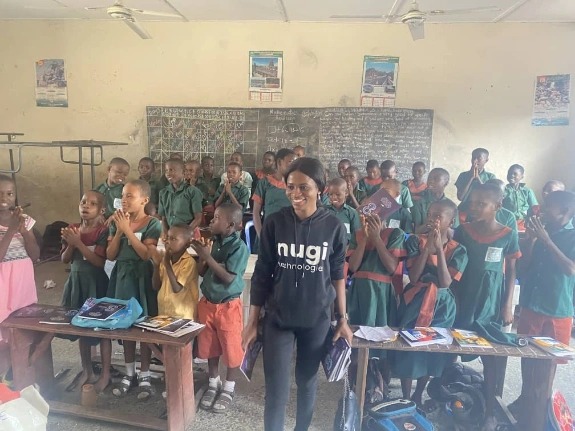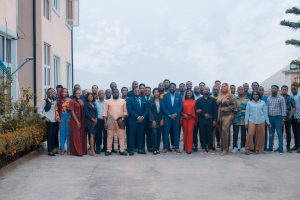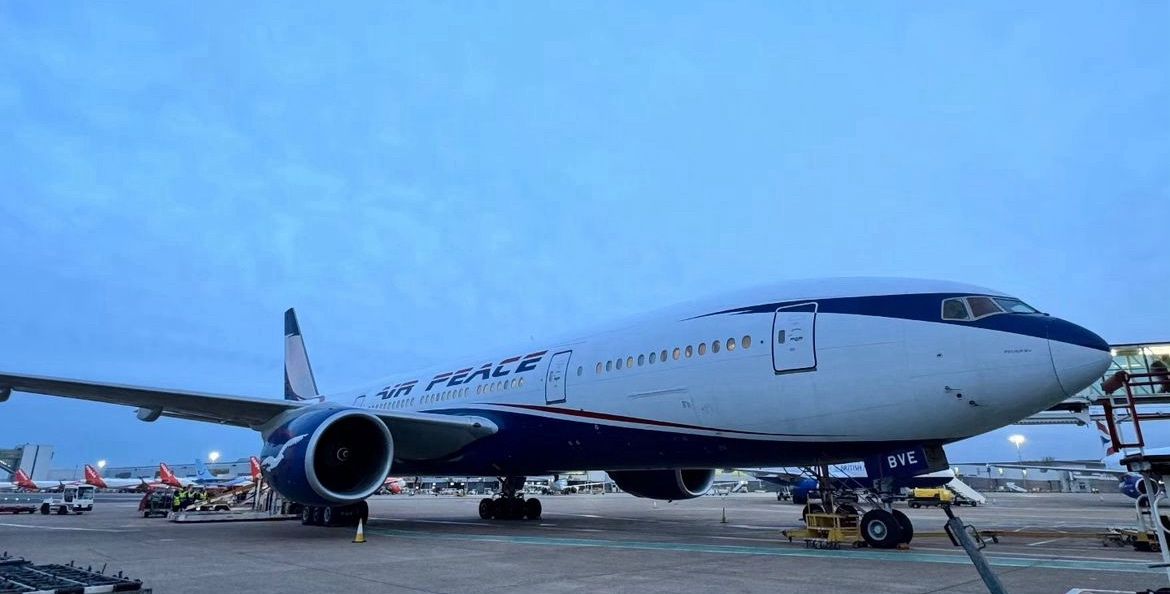As a logistic firm when did you start and what prompted you into the world of logistics?
I started thinking about logistics in 2019 while working with a top NGO in Abuja, Nigeria. Working with the NGO in Nigeria provided me the exposure to public sector supply chains and how they are financed and managed. As a result of poorly coordinated logistics and supply chain systems, many public health facilities struggle with the availability of drugs and essential medicines and this impacts negatively on health outcomes. In 2019, I decided to bring my experience in the public health sector to the private sector logistics space starting with market research in Abuja and Lagos in 2019 across businesses, and delivery companies. We sought to understand the major constraints in the space and the buying behavior of the stakeholders. The data showed that the last mile delivery logistics space in Nigeria has great potentials but faces myriad issues that affect both delivery merchants and customers. Some of these issues are both on the customer and merchant sides. On the merchant sides they include: Poor rider visibility, low operational efficiency, theft etc. On the customer side you have long wait times, access to reliable delivery companies. We decided to innovate in this space by coordinating both demand and supply through a platform model.
So, when did you open shop officially?
We started in November 2019 as a logistics aggregator or “Uber for logistics” connecting delivery companies to customers. This entailed an asset light strategy (no bikes) and strong partnerships with stakeholders. Our hypothesis was that, by leveraging technology and by curating a common set of quality standards we would be able to solve the last mile delivery problem. Our theory of change was that if we were able to link merchant and customer seamlessly and created the right incentives to stay on the platform, we had struck gold- after all it was a winners take all market. At each stage of our journey we have constantly validated this hypothesis considering the changing nature of the market. Now, After 5 months of learning and executing over 1500 deliveries across 12 logistics partners, and with good marketing, the business model pivoted to a different approach which involves owning our in-house bikes and riders. The vision is the same, but the mission has changed to using technology, process innovation and strategic partnerships to fix the customer experience problem in the logistics space in Africa.
Northern region has a lot of security issue, how has this hampered your business?
The current security challenges in the north hampered our expansion plans to Kaduna and Kano. As a context sensitive business, we planned our expansion around cities that are economically mobile in Nigeria. We believe these cities have more purchasing power and more commercial activity that require our services. Kaduna, Kano, Lagos and Port Harcourt are such cities. Furthermore because of the access to the rail system, and the ports, they constitute an economic corridor that can be served by logistics companies. The security situation in the North has delayed our timeline for expansion into these 2 key cities. We are now observing the situation in these cities while consolidating market share in Abuja.
Last Mile Dispatch, E-commerce Logistics and Food Delivery are your areas. Ho do you cope with these?
Trackhub.ng uses technology, process innovation, and strategic partnerships to fix the customer experience problem in the logistics space in Africa. The 3 service areas you mentioned represent our sweet spots in the logistics ecosystem. We have been able to focus on specific niches that offer the path to predictable revenue. By doing so, we have been able to work smart to attract our specific target audience. Trackhub Courier customer profile is that business with high volume of outbound/inbound items (diagnostics lab, wine bar, supermarket or warehouse) frustrated by the quality of their in-house delivery services and excessive rider problems. Our customer retainership models ensure that they benefit from our well-trained riders and high capacity 200cc bikes for a monthly retainer of N110, 000- N150,000 per month (depending on the type of bikes100cc or 200cc). With this model they save 15%-18% off their monthly expenses on deliveries and outsource their rider wahala to us. Trackhub Eats customer profile are the many food vendors, offline food services and restaurants who have some IT willingness and are seeking other channels of increasing customer traffic. By signing up with us, we bring food loving customers their way at 0% commission (1st 2 months of signup). Our customers also include the many food ordering customers who benefit from our expanded option of signed up restaurants and affordable riders who deliver their food hot. Also, the Trackhub E-commerce customer profile is that online store struggling with finding reliable and affordable delivery riders within Abuja. Many of these online stores may have had some of their merchandize stolen or damaged by phony delivery riders. We understand that the value they provide isn’t solely based on the product and the quality of the buying process, but also the logistics and fulfillment. We handle that for them, so that they can handle their part better. By partnering with us through our e-commerce plug-in, online shoppers can easily get their purchased items delivered to their doorsteps. This increases customer satisfaction and repeatable transactions.

What are the innovative services that you have introduced that can make organization insist on your brand?
For the courier business (last mile), we introduced a Corporate retainership model (CRM) for high ticket (volume) businesses with a daily outbound/inbound activity of >20 trips per day. Instead of the company setting up a fleet of logistics bikes (mostly 100cc Bajaj bikes) with in-house riders, they can outsource that to us. Trackhub courier provides one of its 200cc bikes with a well-trained rider, we fund all operational expenses and you pay us a monthly retainer. This model has worked for some of our respected clients in the Diagnostics and Luxury goods space.
How do you handle capacity and skill set?
I come from a consulting role and after 7 years in this space I believe I have some experience in hiring, managing and retaining talent. In hiring, I focus on 5 key things: a) Coachability b) Curiosity c) Previous success d) Work ethic e) Intelligence. I really do not believe in what people write on their CVs to inform my interview style, rather I adopt a more interactive and informal approach to understanding the candidate. My interviews are usually on 3 levels- a) A Cultural Fit b) Assessment of some level of competence c) Assessment of personality. The last stage (C) is usually an informal conversation over drinks or coffee. At the end, I always offer the candidate a fraction of the proposed salary for him to walk away. That way I only hire the candidate with the higher likelihood of commitment. In terms of retaining staff, I focus on training, and capacity development through online courses (Coursera or Udemy), one-on-one coaching and youtube videos. I also try to elicit from the candidate what they really want from their career and how Trackhub aligns with their purpose. Once they can see the alignment, your staff will put in the work. Of course, these are not the only determinants.
Do you think that small startup firms can take advantage of your services?
Depends on what you mean by small firms. Our customer avatar is fairly well defined to depict the audience we can serve. But generally, across the 3 service delivery areas, anyone who fits our customer profile can benefit.
You have a mobile app, can consignments be tracked in real time?
Yes, we have a webapps which can be viewed in mobile mode. Our mobile apps are in the pipeline but we prefer that our users interact with our web apps first and lessons learnt from these will inform mobile development. Our apps can be assessed on: courier.trackhub.ng and eats.trackhub.ng. You can add these to your mobile home screen for easily access.
Payment on delivery is a bit dicey, how do you handle this especially when it has to do with perishables?
For perishables such as food ordered through our platform, its payment upon ordering. As a rule, we do not engage in tasks that mandate us to procure perishables on behalf of clients. For non-perishables payment on delivery is usually not a problem, once the paying party has agreed.
What is the support service that you have in place?
We have remote and filed support to our businesses. Dedicated customer success staff manage all our clients remotely, attending to issues, preferring solutions and looping product issues with the technology team. We also have scheduled operational support by our Ops team to businesses and restaurants.
Do Trackhub do interstate logistic?
In a few weeks we will be kicking off our strategic partnership with businesses for interstate and international deliveries. This is informed by numerous calls from customers for such services and our drive for foot print expansion.
What are we to anticipate from you this second part of the year?
a) More B2B models b) Replication of our model into at least one northern state c) Strategic partnerships for interstate and international deliveries. These two are our core vision and we are working towards this.
What are the challenges that you face?
I won’t call them challenges, rather I prefer to frame them as lessons learnt.
a) Riders- Riders can make or mar your business. Hire, train and provide incentives. They are motivated by incentives and will usually move to the highest bidder- A way to mitigate this is to always have a pool to hire from.
b) Price sensitivity of customers- Customers are usually sensitive to price increases even when these increases are driven by the economic situation.
c) Theft of bikes- The security situation has posed a challenge to our riders as many are frequently attacked in the evenings. It is for this reason that Trackhub.ng service closes at 7pm.
d) Cost of doing business relative to Revenue inflow. This includes cost of the bikes etc. Costs have almost doubled in the last 1 year while the delivery cost have only increased by about 20%. The current pickup and drop off model is not a very sustainable and scalable model. Retainerships are the better way to do business.
“Our theory of change was that if we were able to link merchant and customer seamlessly and created the right incentives to stay on the platform, we had struck gold- after all it was a winners take all market. At each stage of our journey we have constantly validated this hypothesis considering the changing nature of the market.”



















